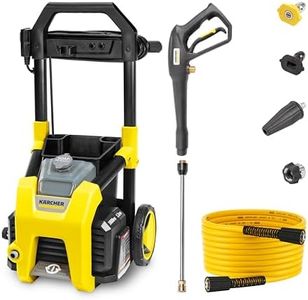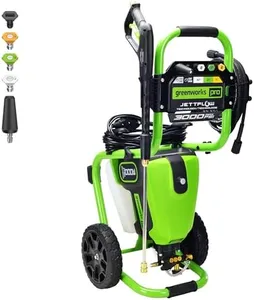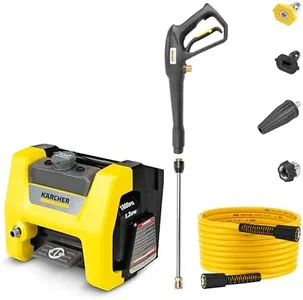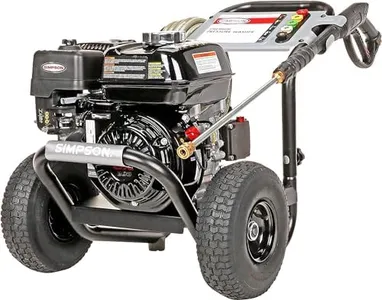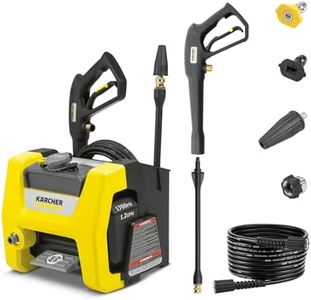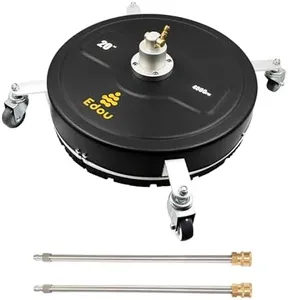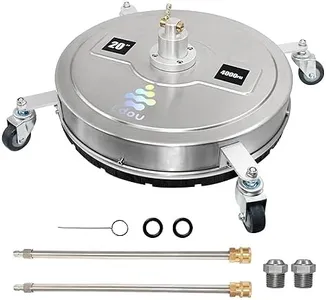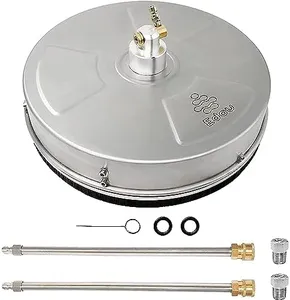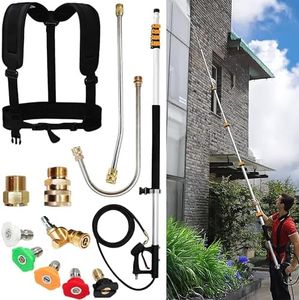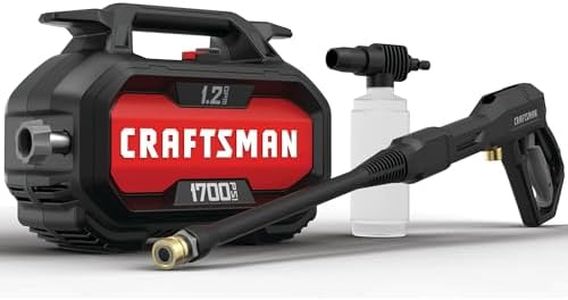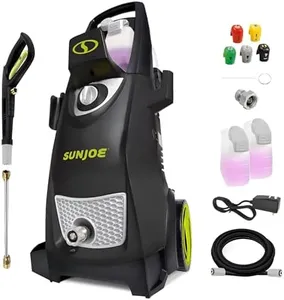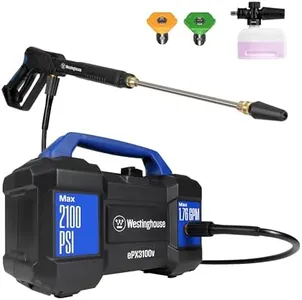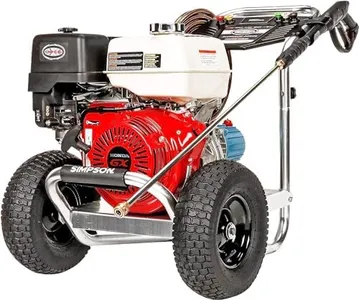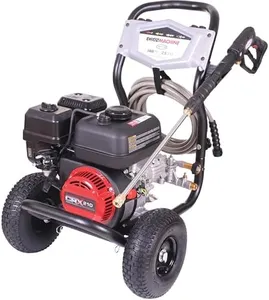10 Best Car Pressure Washers 2025 in the United States
Our technology thoroughly searches through the online shopping world, reviewing hundreds of sites. We then process and analyze this information, updating in real-time to bring you the latest top-rated products. This way, you always get the best and most current options available.

Our Top Picks
Winner
Kärcher Pressure Washer K1800PS, Max 2250 PSI, 3 Spray Nozzles, Detergent Tank, For Cars, Driveways, Siding, Patios, 1.46 max. GPM
Most important from
8730 reviews
The Kärcher Pressure Washer K1800PS is a robust option for those looking to clean cars, driveways, patios, and more. With a maximum pressure of 2250 PSI and a flow rate of 1.46 GPM, it delivers strong cleaning performance suitable for various tasks. This electric-powered washer comes with three nozzles, including a 15° nozzle, a Turbo nozzle, and a 65° soap nozzle, allowing for precise cleaning on different surfaces.
The inclusion of a removable detergent tank makes applying soap hassle-free, and the on/off foot switch adds convenience to its operation. Weighing 24.1 pounds and featuring never-flat wheels, it’s moderately portable and can be maneuvered easily across different terrains, although it may not be the lightest option available. The 20-foot hose length provides decent reach but might require repositioning the unit for larger areas.
This pressure washer is ideal for homeowners seeking an effective, versatile, and easy-to-use cleaning solution for various outdoor surfaces. However, professional users or those needing longer hose reach and larger detergent capacity might need to consider other models.
Most important from
8730 reviews
Greenworks Pro Brushless 3000 PSI (CSA Certified) 2.0 GPM Max / 1.1 GPM Electric Pressure Washer (Rugged Steel Frame, 25 FT Hose, 35 FT GFCI Power Cord)
Most important from
2208 reviews
The Greenworks 3000 PSI TruBrushless Electric Pressure Washer is a powerful choice for those in need of a reliable car-pressure-washer. With a robust 14 Amp TruBrushless motor, it delivers an impressive 3000 PSI and up to 2.0 GPM, making it suitable for heavy-duty cleaning tasks. This unit's performance is PWMA certified, ensuring that the pressure and flow rate claims are independently verified, which adds to its credibility.
The JETTFLOW technology further enhances its performance by providing up to 50% more flow, allowing you to reach higher areas and rinse more quickly. Additionally, it comes with various nozzle types, including 15°, 25°, 40° tips, soap, and turbo nozzles, offering versatility for different cleaning needs. The 25-foot Uberflex kink-resistant hose adds to its convenience by preventing annoying tangles during use.
However, at 51.7 pounds, it is on the heavier side, which might affect portability. Its electric power source means it is quieter and requires less maintenance than gas models, but it also limits mobility to the length of the power cord. In summary, the Greenworks 3000 PSI TruBrushless Electric Pressure Washer is a strong contender for those seeking a high-performance, electric pressure washer for car cleaning and other demanding tasks, though its weight and reliance on an AC power source are considerations to keep in mind.
Most important from
2208 reviews
Kärcher Pressure Washer K1800PS Cube, Max 2250 PSI, 3 Spray Nozzles, Detergent Tank, For Cars, Driveways, Siding, Patios, 1.46 max. GPM
Most important from
8730 reviews
The Kärcher Pressure Washer K1800PS Cube is a compact yet powerful pressure washer designed for a variety of cleaning tasks, making it well-suited for cleaning cars, driveways, siding, and patios. It boasts a maximum pressure of 2250 PSI and a maximum flow rate of 1.46 GPM, which is sufficient for most household cleaning needs. The electric power source ensures consistent performance without the need for fuel, and the on/off foot switch adds convenience by allowing operation without bending over.
The washer is equipped with three nozzles: a 15° nozzle, a Turbo nozzle, and a 65° Soap nozzle, providing versatility for different cleaning tasks. Additionally, it comes with a 20-foot hose, which is fairly standard but may feel a bit short for larger areas. The included 0.3-gallon detergent tank is detachable, making it easy to refill and clean.
Weighing 19 pounds and featuring a compact cube shape, the K1800PS Cube is quite portable and easy to store. Some users might find the maximum flow rate of 1.2 GPM on the lower side compared to other models. The Kärcher K1800PS Cube offers a good balance of power, ease of use, and portability, making it an excellent choice for those needing an effective and compact pressure washer for various cleaning applications.
Most important from
8730 reviews
Buying Guide for the Best Car Pressure Washers
Choosing the right car pressure washer can make cleaning your vehicle much easier and more effective. A good pressure washer can help you remove dirt, grime, and other contaminants from your car's surface without causing damage. To find the best fit for you, it's important to understand the key specifications and how they relate to your needs. Here are the main specs to consider when selecting a car pressure washer.FAQ
Most Popular Categories Right Now
